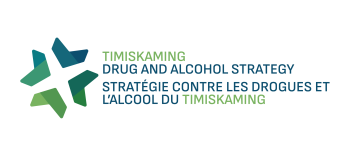I am an Algonquin and Ojibwe woman from the treaty nine territory. My traditional name is the woman who stands at the front and my clan is the bear clan. I currently reside in Timiskaming District of Northern Ontario. I would like to share my lived experience regarding living in Northern Ontario while dealing with addictions.
I am a survivor of the fentanyl epidemic and I have been actively in my healing journey for the past two years. My battle with addiction began with prescription medication that I was improperly tapered off of. When I was being tapered off of my prescription medication, I was referred to the methadone replacement treatment centre. I didn’t realize that I needed extra support in this journey, and nothing was provided or given to me to help make my program successful. The program helped me to suppress the withdrawals but offered me no services in ways of how to support myself with my own recovery or understanding of triggers and coping strategies. I found all that it did was create a dependency in staving off withdrawals but offered nothing in regards to supports that would empower me in my journey of recovery. I was left on my own to find my own supports and resources.
Roughly a year into my active addiction I started working with Mino M’shki-ki and my cultural support worker. Together with my worker I was able to able to access to weekly one-on-one sessions, and cultural supports, and helped me with referrals to treatment. They helped empower me with my own recovery and that has led me to now be able to work with the Timiskaming Drug and Alcohol Strategy’s People with Lived and Living Experience Committee. I have also had the opportunity to work with Thunderbird Foundation to obtain training to better equip me in my field of work. I am also currently pursuing a license in Private Investigations.
Had I had access to counselling and cultural support when I was first referred to the methadone treatment centre I may have been further along in my healing journey. So today I am advocating for referrals to different services such as cultural and mental health support to be done when the first referral and assessments for people are made. These supports need to be made more accessible for people because I would not be alive today if I didn’t find them. Many people don’t know where to even begin to access these resources, and many more have died before they were able to.
I want my story to have an impact showing success when you are able to access resources at an appropriate time. The opposite of addiction is connection.
Miigwetch for taking the time to read my story.

